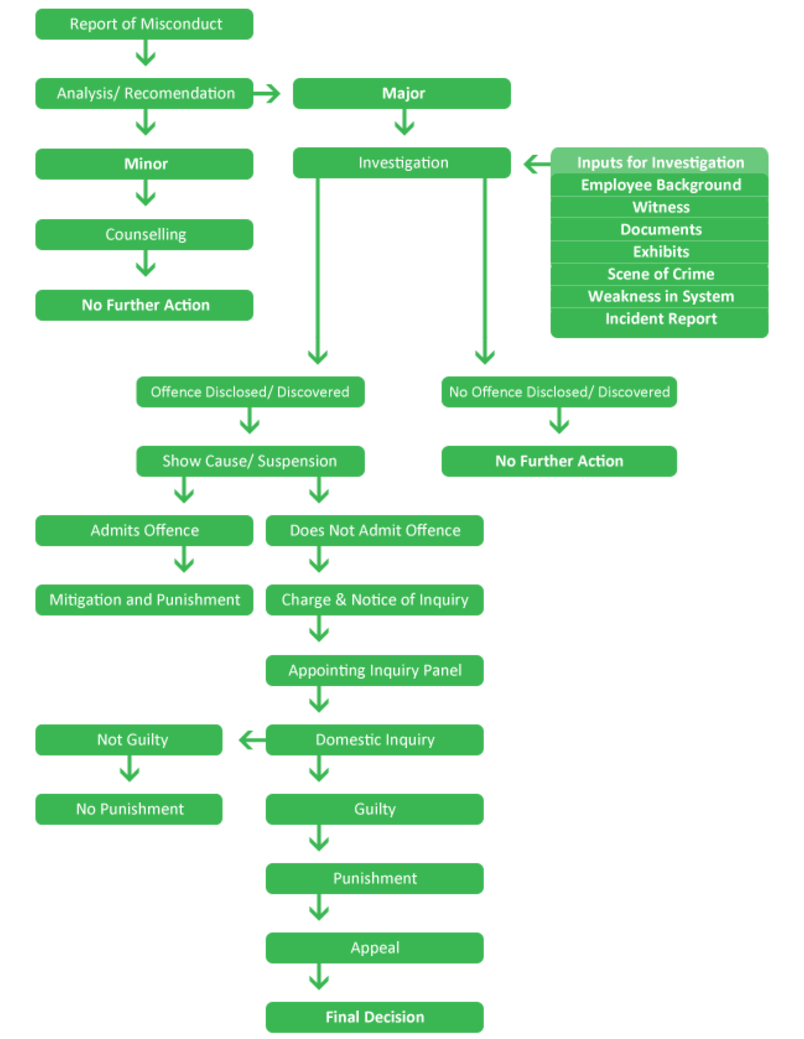Malaysia Law
According to Employment Act 1955 Section 14 (Termination of contract for special reasons), employer may imply punishment such as dismissal without notice the employee, downgrade the employee or impose any lesser punishment as he deems just and fit after due inquiry.
Due inquiry here means the Company must investigate the case and provide the employee an opportunity to defend himself/herself before an independent panel before judgment is put on him/her.
Aside from the above, during investigation, employer hold the rights to suspend the employee from work for a period not exceeding two weeks if his/her presence at workplace would affect the investigations. (Example: Tampering with evidence or threatening witnesses)
So, let’s look how we can handle employee misconduct issues like a HR Pro!
How to differentiate Misconduct
When come to handling employee misconduct, many may have questions in their mind:What might be considered minor misconduct?
The list of things that could be classed as minor misconduct is endless; however, as an HR representative it is important to consider the following examples:- Persistent lateness
- Not completing a piece of work on time
- Not following a manager's instruction
- Doing a piece of work incorrectly
- Not managing your attendance correctly
- Not following procedures properly
What is major misconduct?
Major misconduct is an employee's behavior, which is serious enough to potentially destroys the relationship between an employer and employee. The conduct must be deliberate or amount to gross negligence and entitles an employer to dismiss the employee with immediate effect, without any notice.Often more severe than minor issues, major misconduct can include:
- Theft or fraud
- Physical violence or bullying
- Deliberate and serious damage to property
- Serious misuse of an organization’s property or name
- Deliberately accessing internet sites containing pornographic or offensive material
- Serious insubordination
- Discrimination or harassment
- Bringing the organization into serious disrepute
- Serious incapability at work brought on by alcohol or illegal drugs
- Causing loss, damage or injury through serious negligence
- A serious breach of health and safety rules
- A serious breach of confidence
As soon as the incident has been brought to attention, it is the duty of the manager and HR representative to carry out a fact-finding investigation.
However, if is a minor misconduct, immediate superior is encouraged to conduct counselling session with the employee before employee’s behavior escalated to an extend where it affects the workplace.
Fair Hearing
Referring to due inquiry from the Employment Act 1955, although the Act does not specify how an inquiry should be conducted.But generally, it is important to remember that no employee should be dismissed for misconduct before they were given opportunity to defend himself/herself.
Failure to properly conduct an inquiry could result in an unfavorable finding from the Industrial Court in the even the employee files an unfair dismissal claims with the principles of natural justice.
Guideline
To those who like to know more on how to conduct a proper inquiry, below are the guideline:
Follow us on Facebook for latest information:
https://www.facebook.com/OtopassMY/
